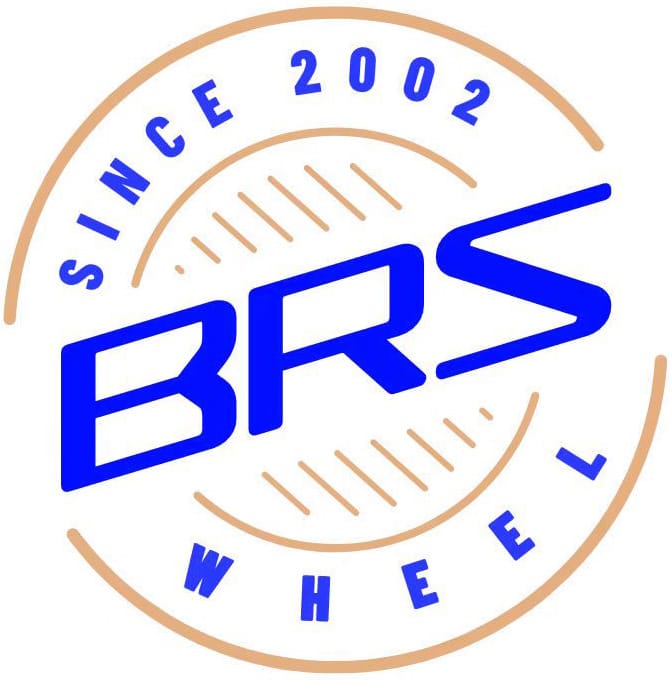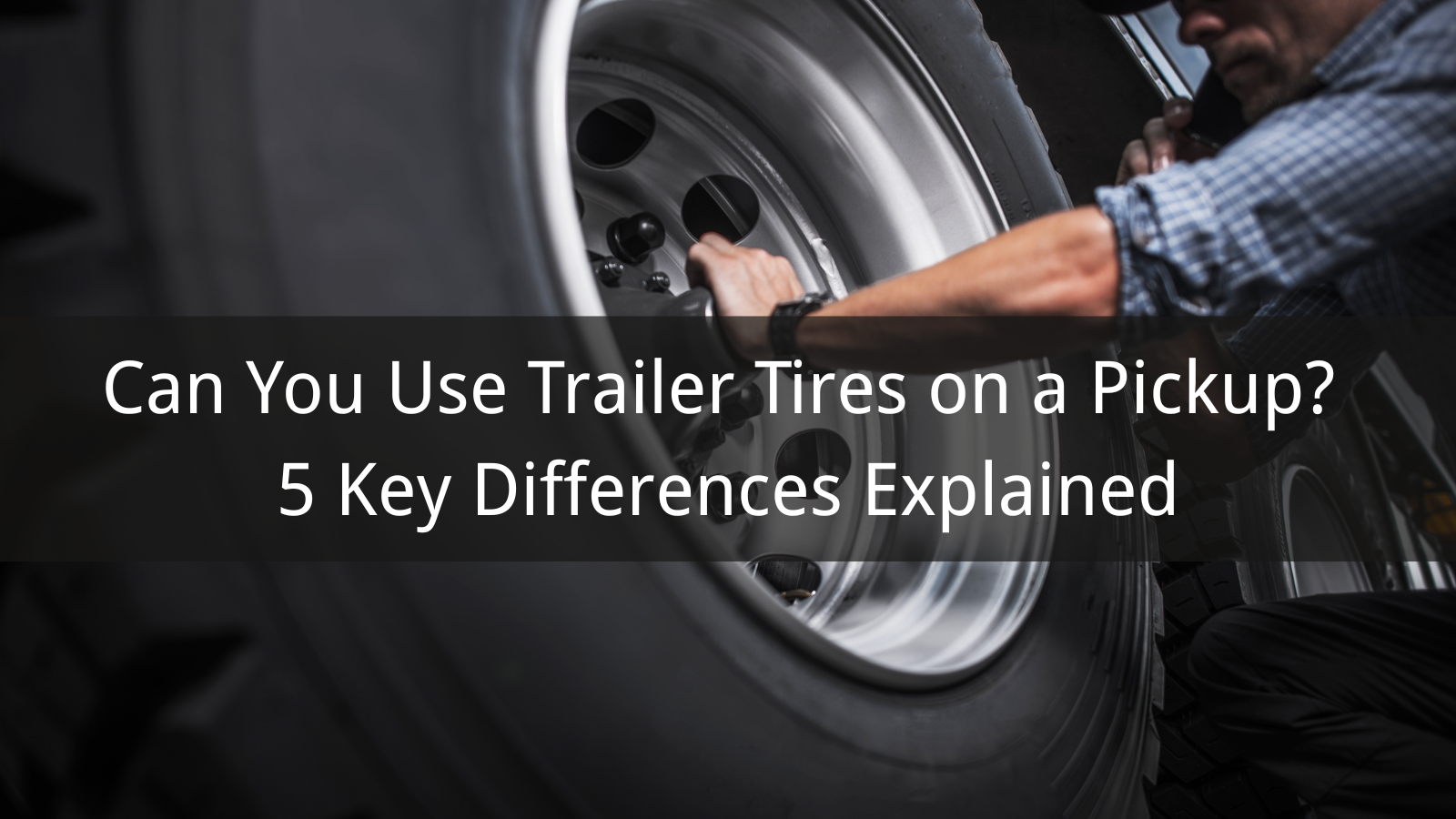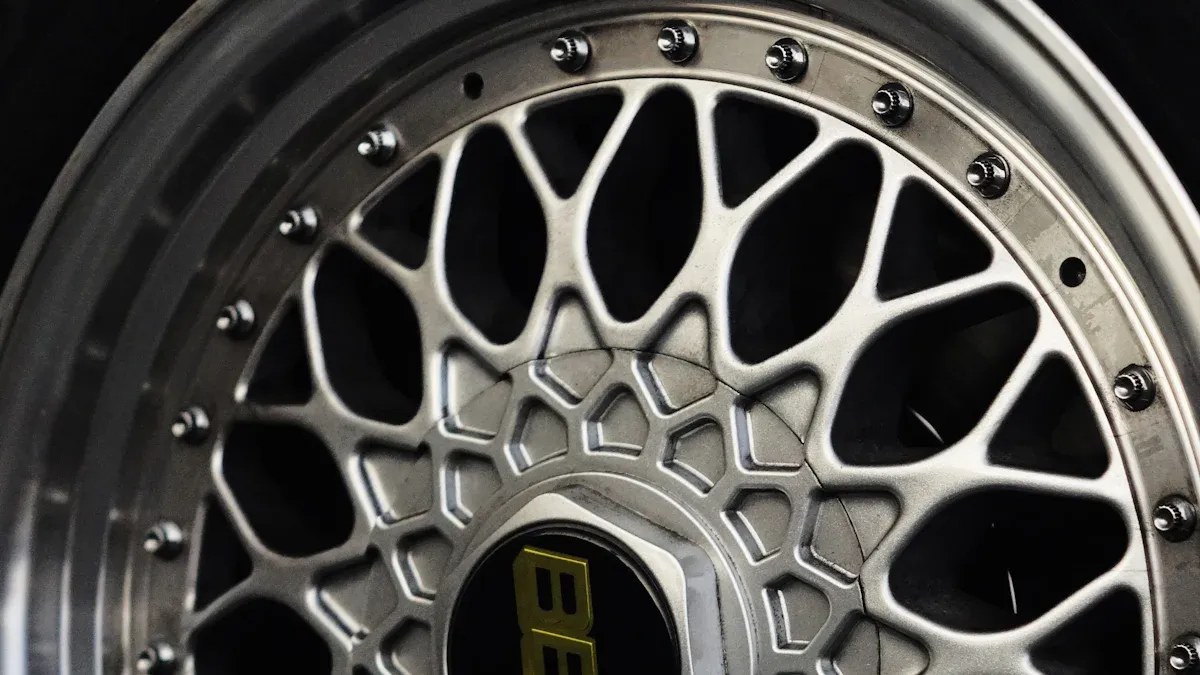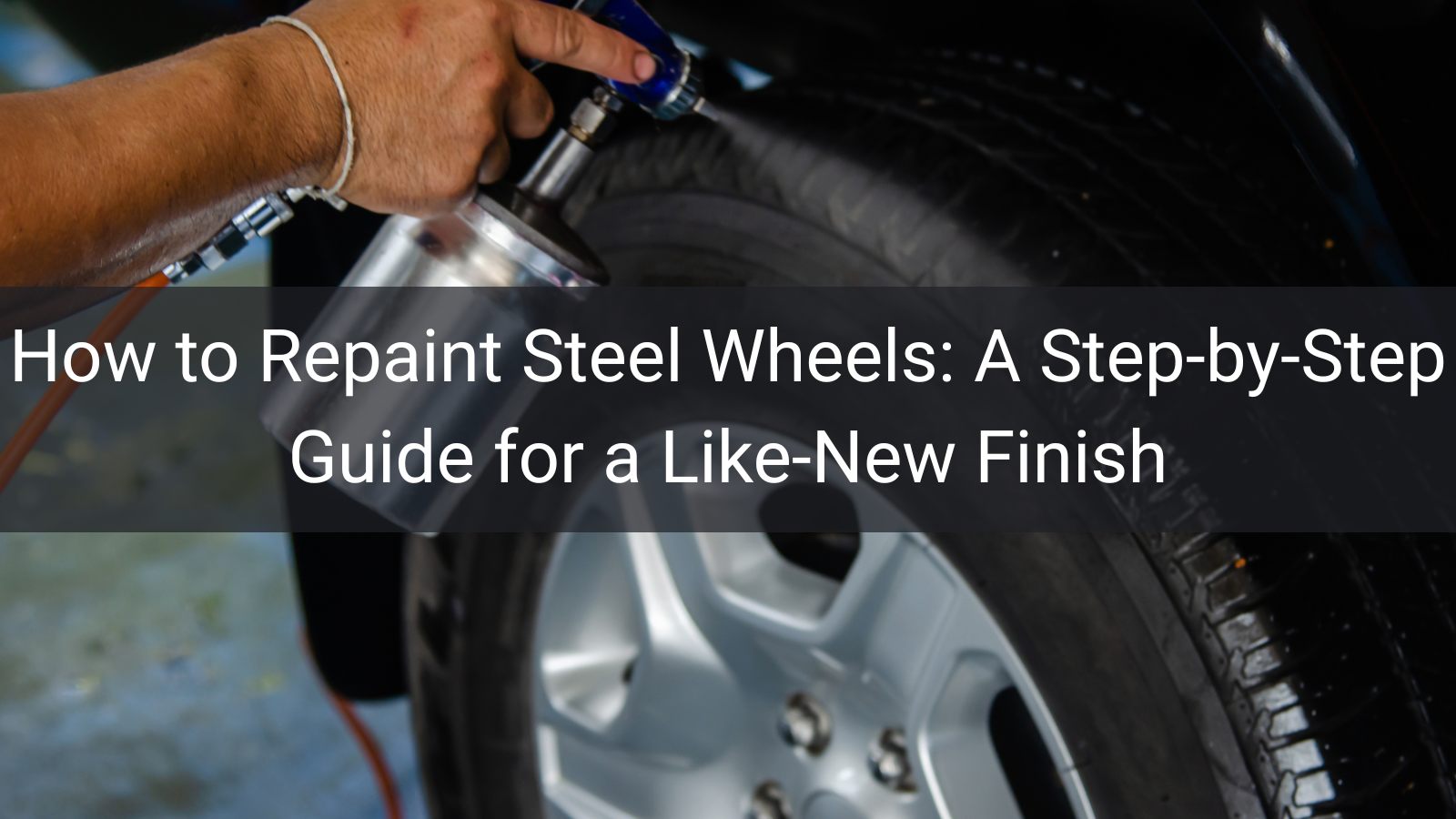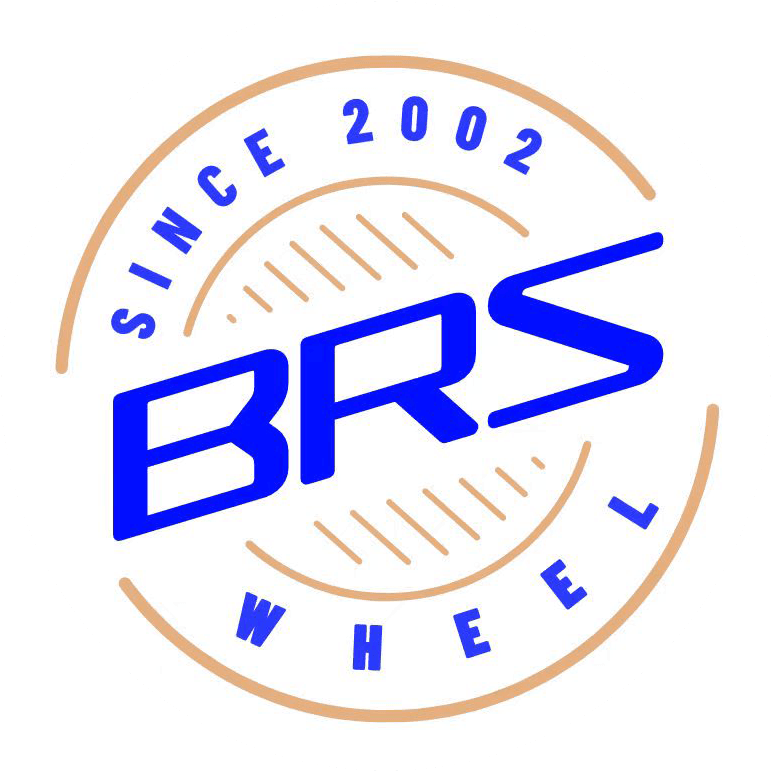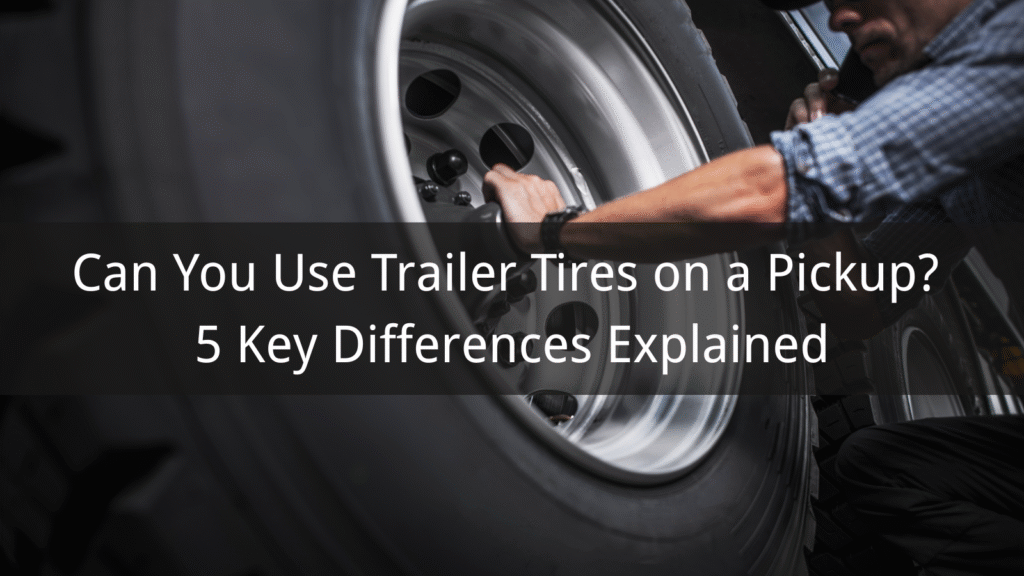
Contents
- Introduction: The Curiosity Behind the Question
- 1. What Makes Trailer Tires (ST) Different from Truck Tires?
- 2. Understanding the Engineering: Why It Matters
- 3. The Hidden Risks of Using ST Tires on a Pickup
- 4. Is It Legal to Run Trailer Tires on a Truck?
- 5. When Could It Possibly Be Acceptable?
- 6. A Smarter Option: BRS Custom Steel Wheels for Pickups
- 7. Final Thoughts: Performance vs Convenience
- Contact Ningbo BRS Auto Parts
Introduction: The Curiosity Behind the Question
Can trailer tires really be used on a pickup truck? It’s a question asked by budget-conscious drivers, off-roaders, and even small business owners looking to repurpose spare tires. While trailer (ST) and pickup truck (LT or P) tires may look the same at a glance, their internal structures, performance goals, and safety standards are entirely different.
1. What Makes Trailer Tires (ST) Different from Truck Tires?
Trailer tires are designated by an “ST” on the sidewall, meaning “Special Trailer.” These are designed to support heavy loads in a straight line—perfect for a trailer being towed. Truck tires, by contrast, carry “LT” or “P” (light truck or passenger) markings and are built for steering, braking, cornering, and road grip.
| Feature | ST (Trailer) Tires | LT/P (Pickup) Tires |
|---|---|---|
| Sidewall Structure | Stiff for vertical load support | Flexible for dynamic handling |
| Tread Pattern | Simple, straight-line focused | Designed for traction & turning |
| Heat Dissipation | Limited, low-speed use | Built for high-speed heat tolerance |
| Speed Rating | Usually lower | Rated for highway & off-road |
2. Understanding the Engineering: Why It Matters
Each tire is engineered for specific stress loads. ST tires are optimized for cargo trailers—they resist squatting under heavy vertical weight but aren’t designed to flex sideways. This means poor steering feedback, delayed response in emergency maneuvers, and unpredictable behavior under load.
Using them on a pickup not only makes handling feel “sluggish” but may lead to premature failure due to bead separation, heat buildup, or carcass breakdown.
3. The Hidden Risks of Using ST Tires on a Pickup
- Loss of Traction: Especially in rain or sudden turns.
- Longer Braking Distances: Reduced grip affects stopping power.
- Tire Blowouts: Overheating is common when used beyond designed speeds.
- Void Warranty: Most tire warranties don’t cover misapplication.
- Insurance Issues: Some claims could be denied if improper tires contributed to a crash.
Trailer tires don’t have the lateral stability or tread adhesion necessary for modern truck performance. Using them for anything beyond short-distance, low-speed towing is risky and potentially illegal.
4. Is It Legal to Run Trailer Tires on a Truck?
In most regions, there’s no explicit law banning the use of ST tires on trucks, but you’ll still be in gray territory. If the tires are not rated for your pickup’s GVWR (gross vehicle weight rating), they would be considered unfit under road safety standards—especially in commercial or fleet applications.
DOT may not intervene on a single-use case, but **law enforcement officers and insurers can raise serious issues** after an accident. Always check tire load index and application guidelines before considering any non-standard swap.
5. When Could It Possibly Be Acceptable?
There are rare exceptions:
- Emergency Use Only: Getting off the road or to a service station when no alternatives exist.
- Off-Road Recreational Builds: In some non-highway off-road projects, where tire structure is adapted intentionally (with risks understood).
- Farm Equipment or Utility Vehicles: Used on private land, low-speed tractors or utility trailers sometimes share rims and tires across applications.
However, these exceptions should never replace permanent or road-legal setups.
6. A Smarter Option: BRS Custom Steel Wheels for Pickups
If you’re considering unusual tire setups due to rim availability or load performance, upgrading to a quality steel wheel built specifically for trucks is the smarter long-term solution.
That’s where Ningbo BRS Auto Parts Co., Ltd. comes in.
- Established in 2002 – China’s leading steel wheel manufacturer
- Over 100,000 m² factory with 2 electrophoretic coating lines
- Shot-blasted rims – for perfect bead sealing and corrosion resistance
- Own lab + CAE analysis – ensuring structural strength, longevity, and fitment accuracy
Whether you’re upgrading your pickup for heavy hauling or replacing worn-out wheels, BRS provides customizable options that match truck load specs, off-road use, or trailer compatibility. Our rims are compatible with most LT tires and DOT regulations, providing peace of mind and superior handling.
7. Final Thoughts: Performance vs Convenience
Using trailer tires on your pickup truck might save you a few bucks upfront, but the long-term costs in terms of safety, insurance, and performance can be much higher. Tires are the only part of your vehicle that touches the ground—don’t compromise with components designed for a different role.
If you’re upgrading wheels or looking for robust steel rims that handle everything from highway speeds to farm loads, consider switching to precision-built wheels from a company like BRS Auto Parts.
Contact Ningbo BRS Auto Parts
For high-strength, cost-effective steel wheels built for pickup trucks, trailers, and commercial use:
- 🌐 Website: https://brsrim.com
- 📧 Email: carrie@brsautoparts.com
- 📞 Phone / WhatsApp: +86 19810666863
Ningbo BRS – Engineering trust into every turn.
